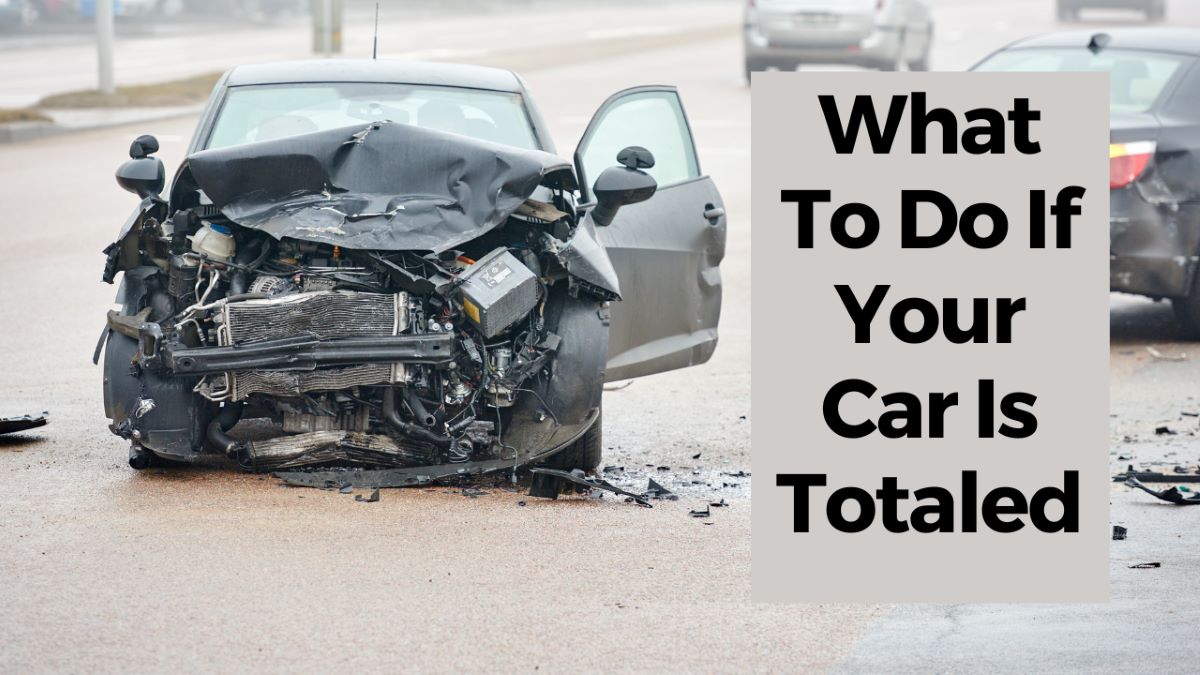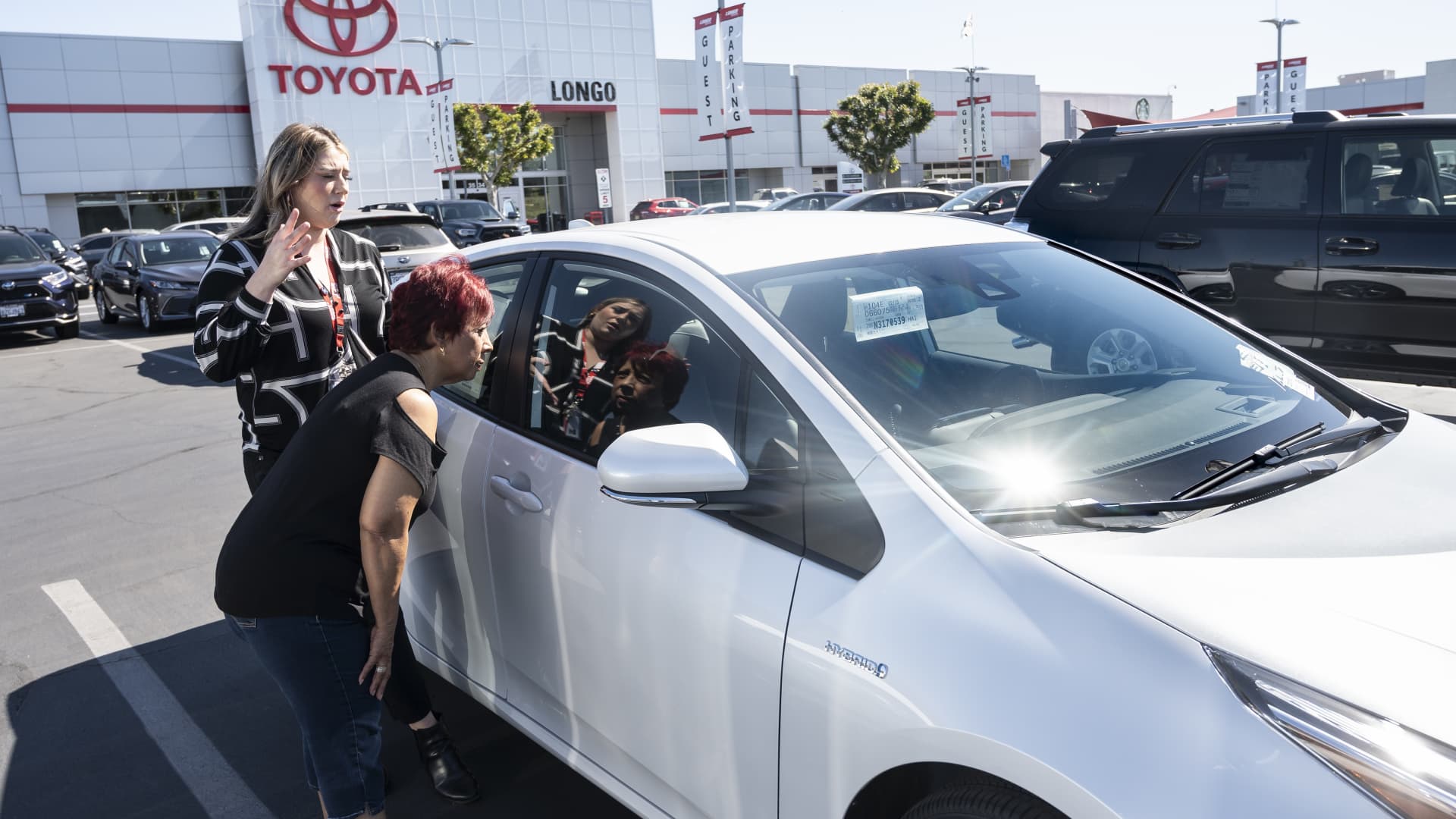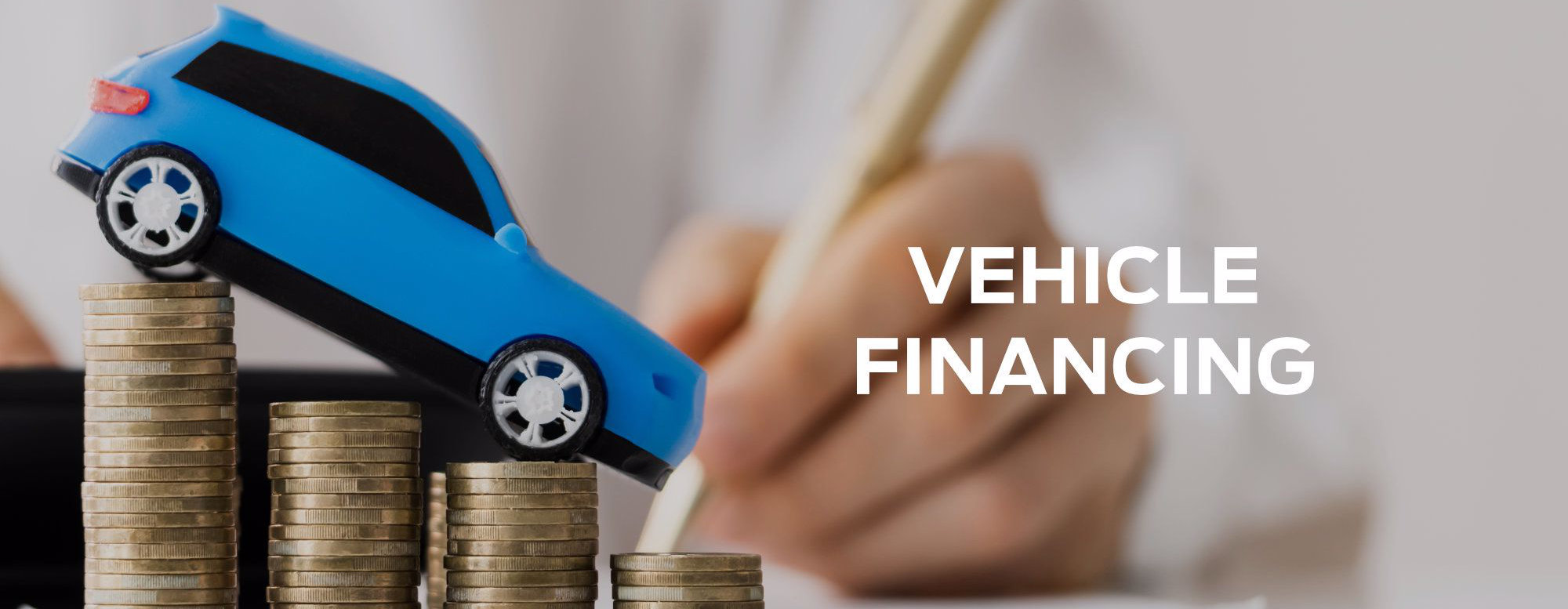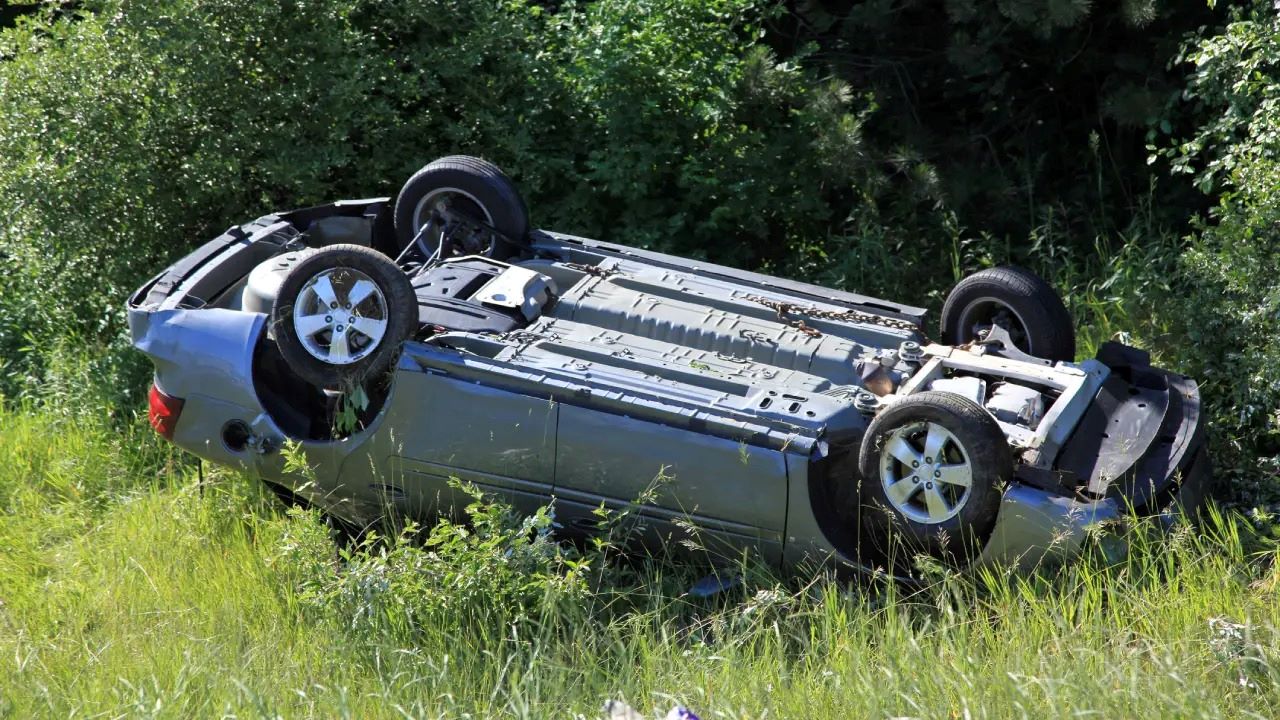Home>Finance>What To Do With A Totaled Financed Car Without Insurance


Finance
What To Do With A Totaled Financed Car Without Insurance
Published: November 6, 2023
Discover your options for dealing with a financed car that is totaled without insurance. Explore ways to handle the financial implications of an unfortunate situation without breaking the bank.
(Many of the links in this article redirect to a specific reviewed product. Your purchase of these products through affiliate links helps to generate commission for LiveWell, at no extra cost. Learn more)
Table of Contents
Introduction
Getting into a car accident is already a stressful experience, but it can become even more complicated if you have a financed car without insurance. In the unfortunate event that your financed car is totaled and you don’t have insurance coverage, you may find yourself in a difficult situation. However, it’s important to understand your options and take the necessary steps to address this issue.
A totaled car refers to a vehicle that has been heavily damaged, to the point where the cost of repairs exceeds a certain percentage of the car’s value determined by the insurance company. When you finance a car, you essentially borrow money from a lender to purchase the vehicle. Until you have fully paid off the loan, the lender holds the title to the car.
Having insurance coverage for a financed car is crucial because it protects not only you but also the lender. In the event of an accident, insurance will help cover the costs of repairs or replacement of the vehicle, ensuring that both you and the lender are not left financially burdened.
However, if you do not have insurance for your financed car and it gets totaled, you could face significant consequences. The lender might still expect you to pay off the loan, even though the car is no longer drivable or repairable. It’s crucial to understand your options and take appropriate steps to deal with the situation.
In this article, we will explore the different options available to individuals who find themselves with a totaled financed car and no insurance coverage. By understanding these options, you can make informed decisions and navigate the challenging process of dealing with a totaled financed car effectively.
Understanding a Totaled Financed Car
When a car is considered “totaled,” it means that the cost of repairs exceeds a certain threshold set by the insurance company. This threshold is typically determined by assessing the car’s pre-accident value and the estimated cost of repairs. If the cost of repairs exceeds a certain percentage (usually 75% to 80%) of the car’s value, the insurance company will declare it a total loss.
When you have a financed car, it means that you borrowed money from a lender to purchase the vehicle. Until you have fully repaid the loan, the lender holds the title to the car. This means that if the car gets totaled, the lender still has a legal claim on it, even though it may not be operable or repairable. In this case, the lender may expect you to fulfill your financial obligations and continue making loan payments, regardless of the car’s condition.
Furthermore, the insurance payout for a totaled financed car is typically issued to both you and the lender. The amount is usually determined by the car’s pre-accident value and the terms of your insurance policy. The insurance payment is supposed to go towards paying off the remaining balance on the loan, with any excess amount being given to you as the car’s owner.
However, if you don’t have insurance for your financed car, the insurance payout will not be available to cover the remaining balance of the loan. This leaves you with the responsibility of repaying the lender, even though you no longer have a functioning car.
It’s important to note that the specific laws and regulations regarding totaled financed cars may vary depending on your location and the terms of your loan agreement. It is advisable to consult with legal professionals or financial advisors who can guide you through the specific processes and requirements relevant to your situation.
Consequences of Not Having Insurance for a Financed Car
Not having insurance for a financed car can have serious consequences, especially if the vehicle is totaled in an accident. Here are some of the potential ramifications:
- Financial Liability: Without insurance coverage, you could be held financially responsible for the remaining balance on your car loan. Even though the car is no longer functional, the lender can still expect you to make payments until the loan is fully repaid.
- No Compensation for the Loss: In the event of a totaled car, insurance coverage would typically provide compensation to help cover the cost of repairs or a replacement vehicle. Without insurance, you would not receive any reimbursement for the loss of your car.
- Negative Impact on Credit Score: Failing to fulfill your loan obligations, including making payments on a totaled car, can have a detrimental effect on your credit score. This can make it difficult for you to secure future loans or credit cards.
- Loss of Transportation: If the car is rendered inoperable due to the accident, not having insurance coverage means you will have to find alternative transportation options. This can be inconvenient and may incur additional expenses.
- Legal Consequences: In some jurisdictions, driving without insurance is illegal. If you are caught driving without insurance and are involved in an accident, you could face legal penalties, fines, and potential suspension of your driver’s license.
It’s crucial to understand the potential consequences of not having insurance for a financed car, especially in the case of a total loss. Taking proactive steps to address the situation is essential to protect your financial well-being and navigate the challenges that may arise.
Options for Dealing with a Totaled Financed Car Without Insurance
If you find yourself in the unfortunate situation of having a totaled financed car without insurance coverage, there are several options you can explore:
- Negotiating with the Lender: Reach out to your lender to discuss the situation and explain that the car is no longer drivable or repairable. You can try to negotiate a solution that is beneficial for both parties, such as modifying the loan terms or agreeing on a reduced payoff amount.
- Paying off the Loan: If you have the financial means to do so, paying off the remaining balance on the loan upfront can help you resolve the issue. By doing this, you can ensure that you no longer have any financial obligations to the lender regarding the totaled car.
- Seeking Legal Advice: Consult with a legal professional who specializes in finance and car accident cases. They can provide you with guidance on your rights and options, and help you navigate the legal complexities surrounding a totaled financed car without insurance.
- Selling the Salvage Vehicle: If the car still holds some value, despite being totaled, you can explore the option of selling it as a salvage vehicle. Salvage yards or private buyers may be interested in purchasing the car for spare parts or even to rebuild it. Proceeds from the sale can be used to pay off a portion of the remaining loan balance.
Each option has its own advantages and considerations. It’s important to carefully evaluate your financial situation, assess the feasibility of each option, and determine which course of action is best suited for your circumstances. Seeking professional advice can greatly assist you in making informed decisions.
Remember, dealing with a totaled financed car without insurance is a challenging situation, but it’s not insurmountable. By exploring these options and taking action, you can work towards resolving the issue and moving forward with your financial obligations.
Negotiating with the Lender
If you have a totaled financed car without insurance, one potential option is to negotiate with the lender. By reaching out to the lender and explaining your situation, you may be able to come to a mutually beneficial agreement. Here’s how you can approach negotiating with the lender:
1. Communicate your situation: Contact your lender as soon as possible to inform them about the accident and the fact that your car has been totaled. Explain the absence of insurance coverage and the financial challenges you are facing as a result.
2. Provide documentation: To support your case, gather all relevant documents, such as the accident report and any information about the car’s value prior to the accident. This documentation will help establish the extent of the damages and your financial standing.
3. Explain your financial limitations: Be transparent about your financial situation and the difficulties you may face in continuing to make loan payments for a car that is no longer operational or repairable. Emphasize that fulfilling the loan obligations under these circumstances may create undue financial hardship for you.
4. Request loan modification: Propose a loan modification plan that takes into account the loss of the car and your inability to continue making payments. This can include options such as extending the loan term, lowering the interest rate, or reducing the payoff amount.
5. Be open to negotiations: The lender may counter your proposal with alternative options. Be flexible and willing to negotiate in order to reach a mutually agreeable solution. Keep in mind that the lender also has a vested interest in resolving the situation in a way that minimizes their financial risk.
6. Get everything in writing: Once an agreement has been reached, make sure to get all the terms and conditions in writing. This will help protect both parties and provide clarity regarding the agreed-upon changes to the loan agreement.
Remember, negotiating with the lender requires open communication, transparency, and a willingness to find a compromise. It’s essential to advocate for your situation while respecting the lender’s interests. Seeking the assistance of a financial advisor or legal professional can provide valuable guidance and help ensure that you negotiate from a strong position.
Paying off the Loan
If you are in a position to do so, paying off the remaining balance on the loan for your totaled financed car can be an effective solution to address the lack of insurance. Here are some key considerations when choosing this option:
1. Assess your financial capacity: Determine if you have the financial means to pay off the remaining loan balance. This involves evaluating your savings, income, and any other available resources. Consider the impact it may have on your overall financial stability.
2. Calculate the loan payoff amount: Contact the lender to obtain the precise amount needed to completely pay off the loan. This may include the outstanding principal balance, interest, and any applicable fees or penalties.
3. Weigh the benefits: Paying off the loan upfront can provide several advantages. It eliminates your financial obligation to the lender for the totaled car, allowing you to move on without ongoing loan payments. It also avoids the potential damage to your credit score due to missed or late payments.
4. Consider the opportunity cost: Evaluate the opportunity cost of using your available funds to pay off the loan. Assess if there are other financial goals or priorities that may be impacted by utilizing these funds. Compare the benefits of paying off the loan with the potential alternative uses of your money.
5. Negotiate a reduced payoff amount: In some cases, lenders may be open to accepting a reduced payoff amount if you can make a lump sum payment. This can help you save money and may be a viable option if the lender is willing to negotiate.
6. Ensure proper documentation: Once you have decided to pay off the loan, ensure that you receive a written confirmation and documentation from the lender stating that the loan has been fully satisfied. This will serve as proof that you have fulfilled your financial obligations.
Keep in mind that paying off the loan may require a significant amount of funds upfront. Be sure to assess your financial situation and carefully consider the impact of this decision. If you have any doubts or concerns, it may be beneficial to seek advice from a financial professional who can assist you in making an informed decision.
Seeking Legal Advice
If you find yourself facing a totaled financed car without insurance, seeking legal advice can be a valuable step to understand your rights, obligations, and potential courses of action. Here’s why and how to seek legal guidance:
1. Understanding your legal rights: Laws and regulations surrounding financed cars and insurance vary by jurisdiction. A legal professional specializing in car accident and finance law can help you understand your rights in your specific location and circumstances.
2. Assessing liability: An attorney can evaluate the details of your situation to determine if any party, such as the other driver involved in the accident or the lender themselves, may share some liability. This can help you explore potential options for minimizing your financial responsibilities.
3. Navigating insurance claims: Even without insurance, there may be circumstances where you could still seek compensation for the accident through other avenues, such as uninsured/underinsured motorist coverage, or exploring claims against third parties involved in the accident.
4. Guidance on loan obligations: A legal professional can advise you on your obligations to the lender and help negotiate with them on your behalf. They can review your loan agreement and assess any potential breaches that may impact your liability.
5. Negotiating settlements: Lawyers experienced in car accident and finance cases can work with the lender to negotiate a favorable settlement or workout arrangement. They can advocate for your rights and make sure you are not burdened with an unfair financial responsibility.
6. Representing you in legal proceedings: If the situation escalates and legal action becomes necessary, an attorney can represent your interests in court. They can prepare the necessary documentation, present arguments on your behalf, and navigate the legal proceedings related to the totaled financed car.
When seeking legal advice, it’s important to consult with a qualified attorney who specializes in car accident and finance law. Look for practitioners with experience in handling cases involving financed vehicles and insurance-related issues. The attorney should be able to provide guidance tailored to your specific situation and help you make informed decisions based on your legal rights and options.
Keep in mind that legal services may come at a cost, so consider evaluating the potential benefits against your financial circumstances to determine the best approach for your situation.
Selling the Salvage Vehicle
If you have a totaled financed car without insurance, one option to consider is selling the salvage vehicle. While the car may not be drivable or repairable, it may still hold some value as a source of spare parts or for rebuilding purposes. Here are some key points to keep in mind when selling a salvage vehicle:
1. Assess the value of the salvage vehicle: Contact salvage yards or automotive professionals to determine the potential value of your totaled car. They will evaluate its condition and provide an estimate of its worth based on the salvageable parts or potential for restoration. This will give you an idea of the potential proceeds from the sale.
2. Research salvage buyers: Look for salvage yards or private buyers who specialize in purchasing totaled vehicles. Research their reputation, reliability, and experience, as well as their willingness to handle the necessary paperwork and legal requirements for transferring ownership.
3. Gather documentation: Prepare the necessary paperwork, such as the car’s title, accident report, and any other relevant documents. This documentation will be required by potential buyers to validate ownership and ascertain the full extent of the vehicle’s damage.
4. Negotiate the sale: Engage in negotiations with salvage buyers to secure a fair price for the salvage vehicle. Be open to discussing the condition of the car, the salvage value, and any additional terms or conditions associated with the sale.
5. Transfer ownership: Once you have agreed on a price, ensure that the necessary paperwork is completed to transfer the ownership of the salvage vehicle to the buyer. This will release you from any liability or responsibility associated with the car.
6. Use proceeds to pay off the loan: If possible, utilize the funds obtained from selling the salvage vehicle to pay off a portion of the remaining balance on your car loan. This will help reduce your financial obligations to the lender and alleviate some of the financial burden resulting from the totaled car.
It’s important to note that selling a salvage vehicle may not result in a significant amount of money, especially if the car has severe damage. However, it can still provide some relief by converting the non-operational vehicle into cash that can be put towards your financial obligations.
Prior to selling the salvage vehicle, it’s advisable to consult with a legal professional or financial advisor who can guide you through the process and ensure compliance with any legal requirements specific to your jurisdiction.
Conclusion
Dealing with a totaled financed car without insurance can be a challenging and stressful situation. However, it’s important to remember that there are options available to help navigate this difficult circumstance. By understanding your rights, exploring different avenues, and seeking appropriate advice, you can take proactive steps towards resolving the issue.
If you find yourself in this situation, consider negotiating with the lender to potentially modify loan terms or obtain a reduced payoff amount. If feasible, paying off the loan upfront can provide a straightforward resolution. Seeking legal advice can help you understand your rights, explore potential liabilities, and negotiate with the lender or other parties involved.
Alternatively, selling the salvage vehicle can provide some relief by converting the non-operational car into cash that can be used to pay off a portion of the remaining loan balance. While the proceeds may not be significant, it can help alleviate financial burdens.
Remember, each option has its own advantages and considerations. It’s important to assess your specific situation, weigh the potential outcomes, and make informed decisions based on your financial capacity and long-term goals. Seeking guidance from professionals, such as financial advisors or legal experts, can provide invaluable support and ensure that you navigate the process effectively.
While the situation of a totaled financed car without insurance can be overwhelming, it’s important to stay proactive and take action. By doing so, you can work towards resolving the issue and moving forward with your financial obligations. Remember, this unfortunate event is an opportunity to learn and make better choices regarding car insurance and financial planning in the future.














